CarEdge saved me over 4,500 dollars on a brand new Honda Pilot. I can't say thank you enough.
Price intelligence
Find a wide range of vehicle listings with market insights on new and used listings near you.


Help us personalize your CarEdge experience — it only takes a second.
Your answers help us personalize your CarEdge journey — we’ll follow up with tips and next steps that match your buying timeline.

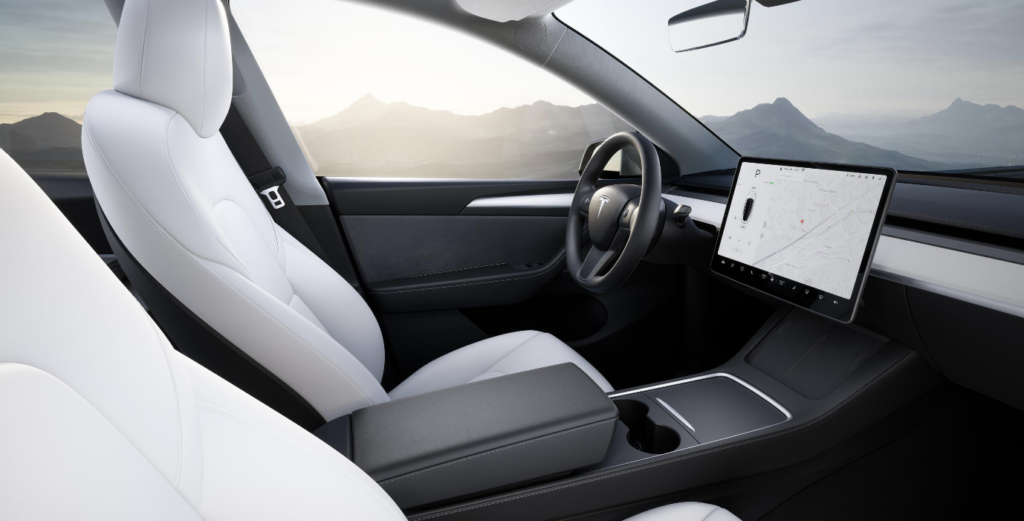
One third of American drivers are seriously considering going electric as generous tax credits, fuel savings and reduced emissions lure the masses towards EVs. My own household made the switch in early 2022, and we’re never going back to ICE. In hopes of adding clarity to the current EV market, we’ve created this resource to share what we think are the BEST electric cars, trucks and SUVs in 2023. We’ve also shared what we think are the worst.
These models are stand-outs for their value. Range, charging speed and available features are given priority over performance in our analysis.
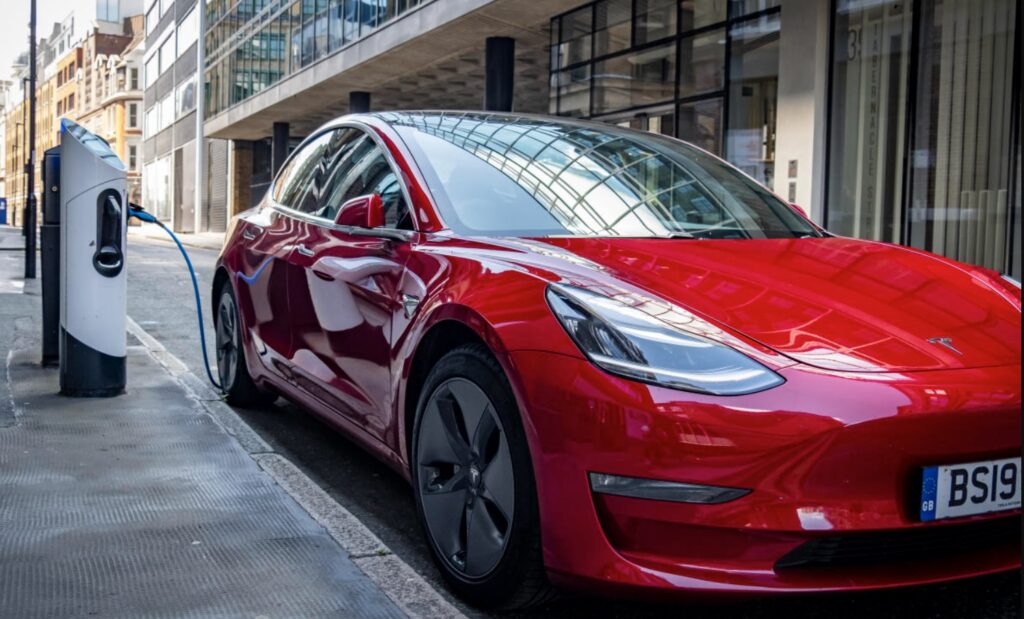
Price: $41,990
Range: 272 miles
Fast charging (adding 200 miles in 20-30 minutes)
Why it’s great: The Tesla Supercharger network makes cross country travel hassle-free. Tesla charges are very reliable, and with 1,500 locations in all 50 states, finding one is rarely an issue.
Plus, the price you see on Tesla’s online configurator is the price you pay (before taxes and required fees, of course). While legacy automakers continue to struggle with out-of-control dealer markups, Tesla and other direct-to-consumer EV makers have the upperhand on pricing.
See pre-owned Tesla inventory near you, or configure a new Tesla at Tesla.com
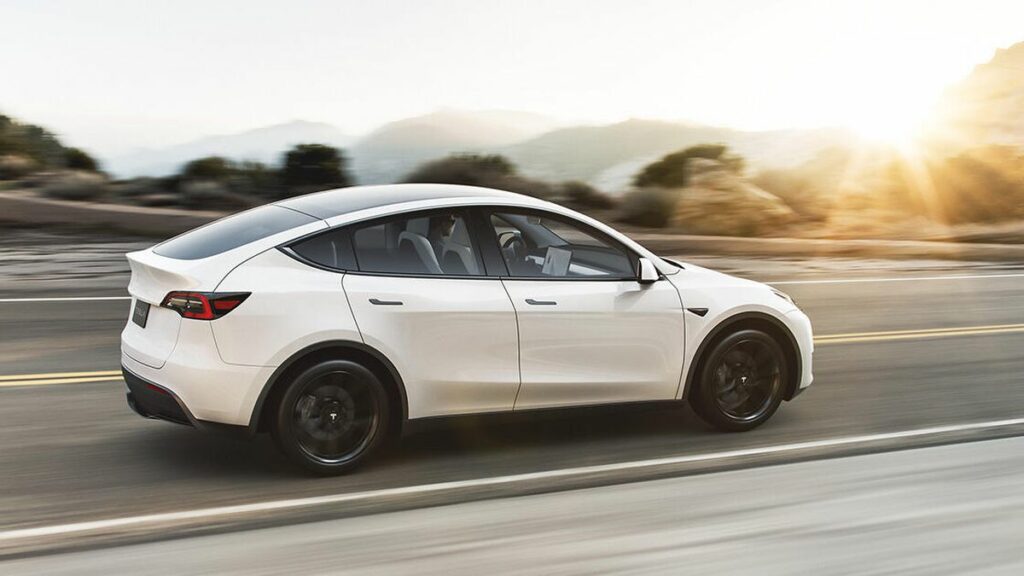
Price: $52,990+
Range: 330 miles
Fast charging (adding 200 miles in 20-30 minutes)
Why it’s great: The Model Y is the larger, more family-oriented version of the Model 3. Last year, the Model Y overtook the 3 as the best-selling EV in America. Although it is the most expensive model on this list, if you can afford it, the ease of public charging, great range, spacious interior and exhilarating performance all make this the sweet spot for many buyers. Plus, there are no dealer markups.
But wait, there’s more. Both the Model Y and Model 3 are available for delivery soon after placing an order. Tesla wait times are between one and three months as of late 2022. That’s about as good as it gets in today’s EV market.
Should you ever decide to sell, both of these Teslas have amazing resale value.
See pre-owned Tesla inventory near you, or configure a new Tesla at Tesla.com
Check out this resource: The Best Electric Vehicles Under $50,000
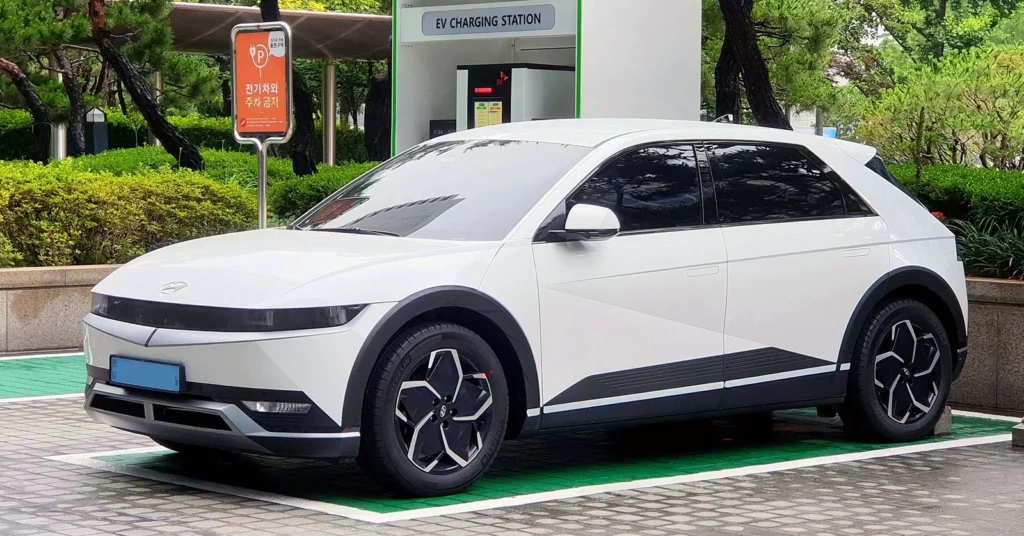
Price: $46,250 (dealer markups are common but negotiable)
Range: 303 miles
Fast charging: Add 200 miles of range in 20 minutes
Why it’s great: The 2023 IONIQ 5, Kia EV6, and Genesis GV60 are the first models powered by Hyundai Motor Group’s Electric Global Modular Platform. This is next-gen 800-Volt architecture at (relatively) affordable prices, and that’s awesome.
Plus, the IONIQ 5 is spacious, and looks really cool. Sadly, Hyundai has had a very difficult time scaling up production due to supply chain constraints, so expect to either wait for at least six months, or battle outrageous dealer markups to get your hands on a rare allocation.
I love my IONIQ 5. Here’s a review of my ownership experience so far.
See Hyundai IONIQ 5 inventory near you.
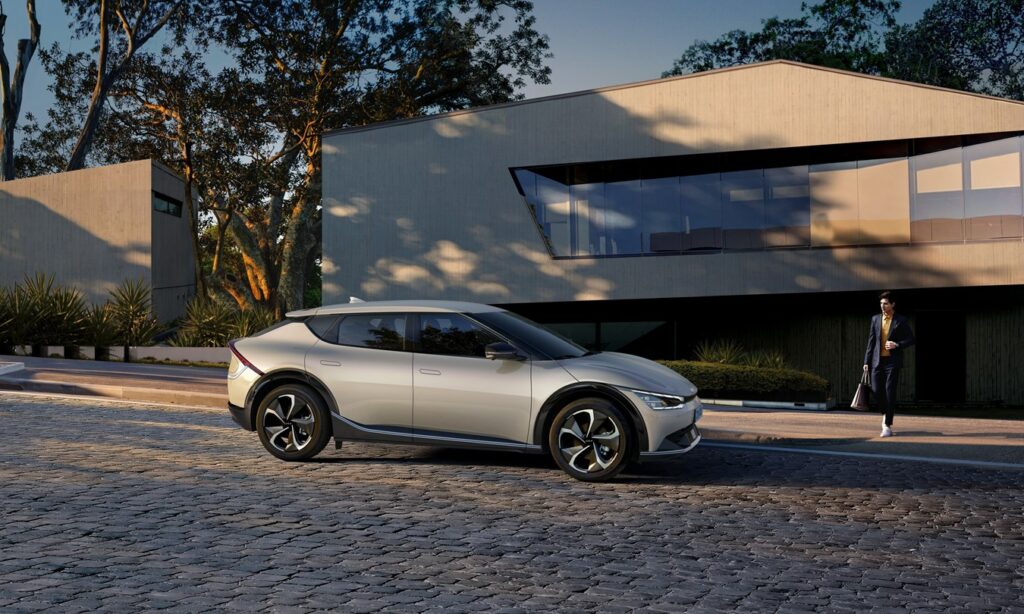
Price: $49,795 (dealer markups are common but negotiable)
Range: 310 miles
Fast charging: Add 200 miles of range in 20 minutes
Why it’s great: Kia’s version of the IONIQ 5 looks completely different, with very similar specs. That’s because both models share the e-GMP platform with great range and even better charging.
The 2023 EV6 has slightly more availability than the IONIQ 5 right now. For the 2023 model year, Kia decided to drop the “Light” base model, kicking the entry-level price all the way up to nearly $50,000.
As always, I recommend everyone take a test drive before dismissing EVs. They’re quiet, efficient and fun. The EV6 would be a great one to take for a spin.
See Kia EV6 inventory near you.
Here’s every electric truck’s pricing and range.
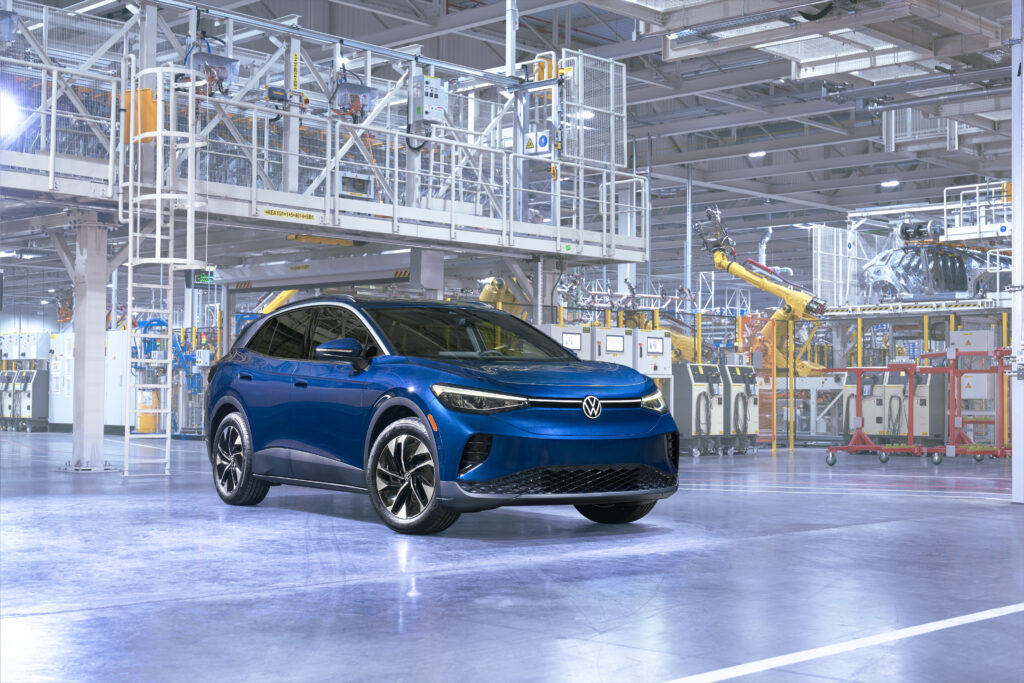
Price: $42,495
Range: 275 miles
Fast charging: Add 190 miles of range in 28 minutes
Why it’s great: The VW ID.4 is now made in America at Volswagen’s Chattanooga, Tennessee factory. That means it will qualify for the revised EV tax credit (up to $7,500), as long as your VIN confirms that it is an American-made ID.4. I was impressed during my test drive of the ID.4. It rides like a luxury crossover, and has plenty of acceleration when you need it. However, it’s definitely the least sporty of this bunch, but it’s also the least expensive.
Now made in America, there is also a new cheaper option starting at $37,495. However, with public charging infrastructure slow to build out, the expected 208 miles of range is not enough for us to confidently recommend it to anyone but those who expect to stick around urban areas 95% of the time. The ID.4 Pro, on the other hand, is exceptional value with the EV tax credit.
See Volkswagen ID.4 inventory near you.
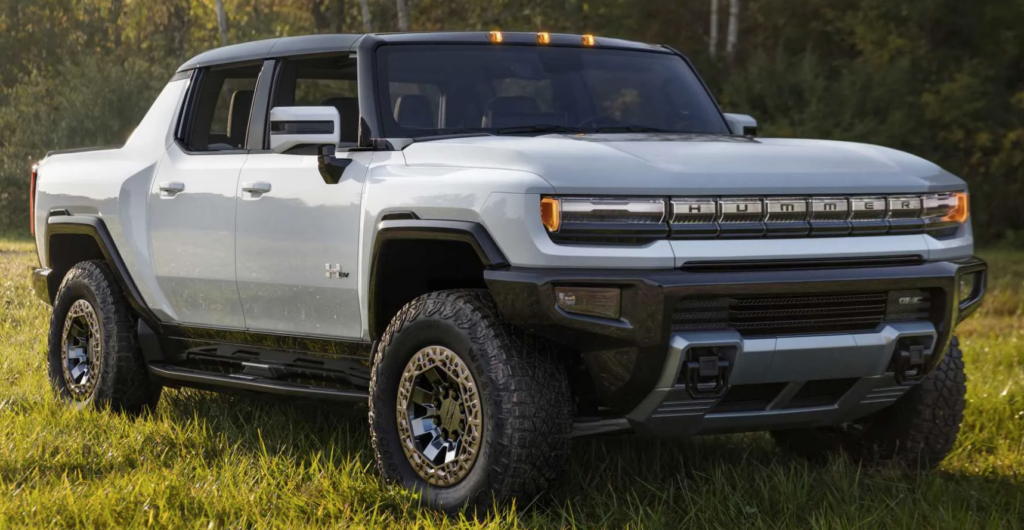
Price: $90,000-120,000 (before markups of up to $100,000)
Range: 329 miles
Why it’s horrible: Where do we start? The Hummer EV costs $100 to charge (because it has a MASSIVE 212 kilowatt-hour battery pack), weighs 9000 pounds (that’s 2x the weight of the typical F-150), and is horrible for the environment. If you’re looking to go green with your EV purchase, this isn’t it. It’s also very expensive, but that’s less surprising these days.
At auction, we’ve seen many Hummer EVs selling for over $200,000. No thanks.
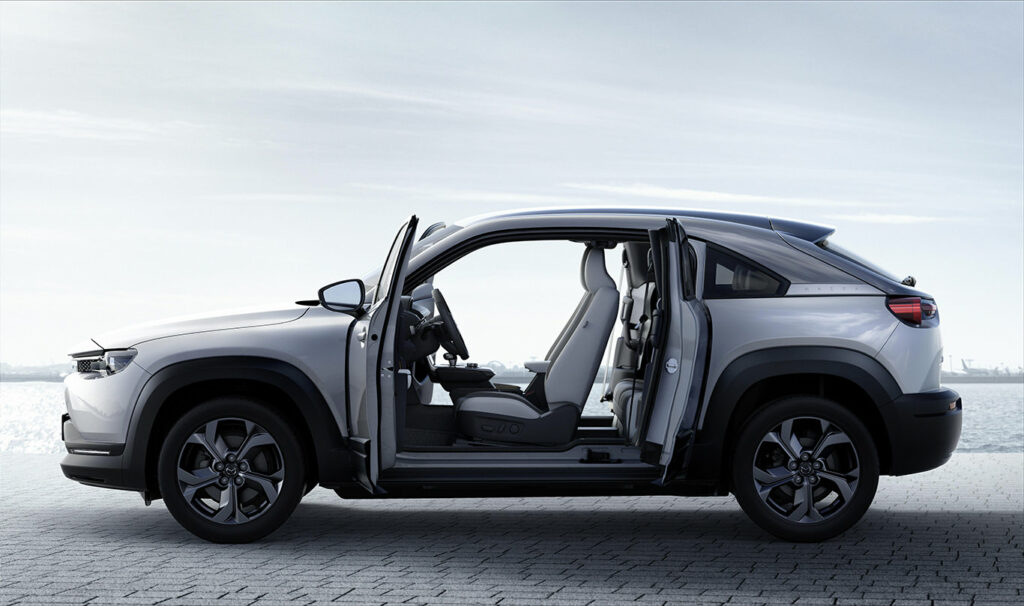
Price: $34,000
Range: 100 miles
Why it’s horrible: If you’re considering the Mazda MX-30, send me an email at [email protected]. I’d like to talk you out of it. I have nothing against Mazda as a brand (they make some awesome cars), but I am very against anyone buying an electric car with just 100 miles of range in 2022. Sure, maybe it’s just for around town. Have you thought about resale value? With barely 100 miles on a charge and slow charge times of around one hour, I’m afraid Mazda’s first EV won’t be worth its scrap metal value in a decade.
Other options to consider at this price point? The Nissan LEAF, base Volkswagen ID.4, Chevrolet Bolt, and soon-to-come Chevrolet Equinox EV are all far more capable for under $40,000.
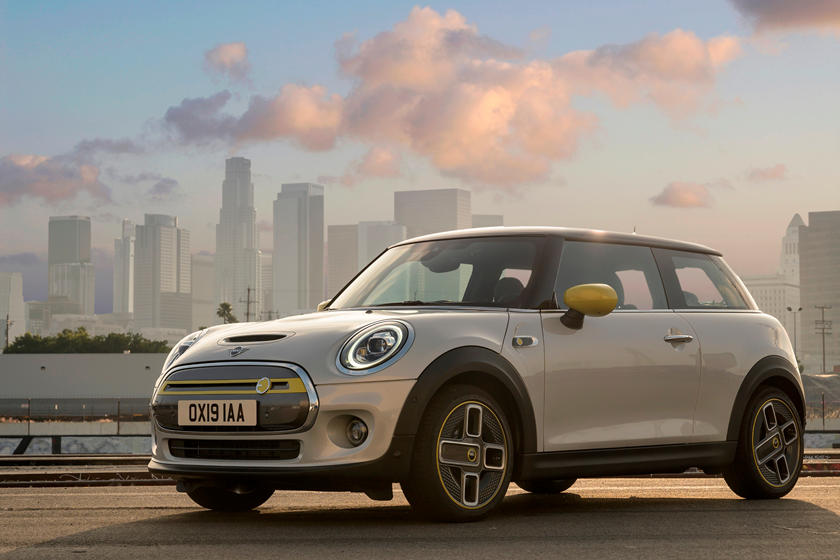
Price: $34,000
Range: 110 miles
Why it’s horrible: I sure hope CarEdge’s own Ray Shefska forgives me for bashing the electric MINI, but with 110 miles of range and slow charging, I don’t see a single reason why anyone should consider this EV. It’s one of the last ‘compliance cars’ in the EV market.
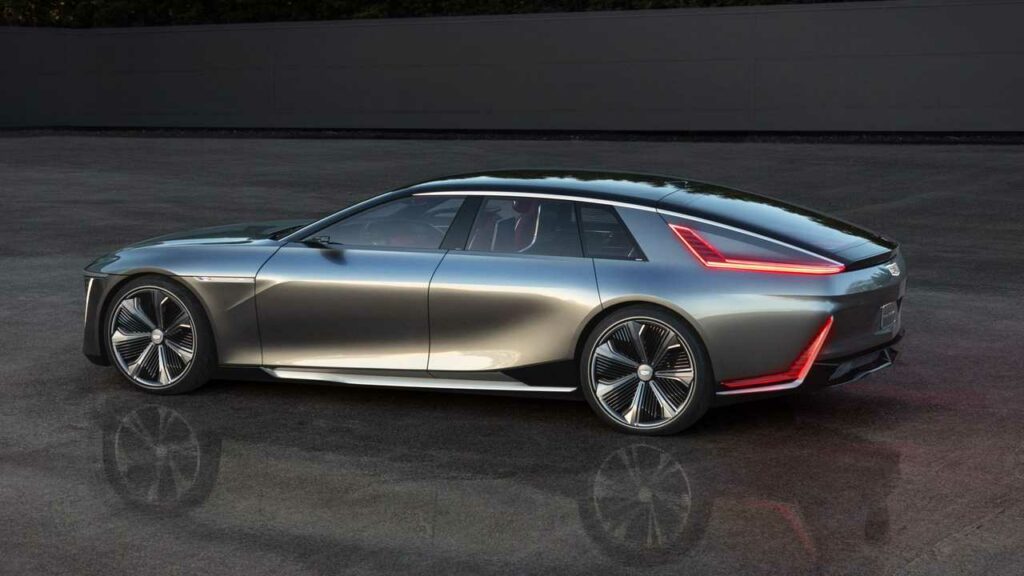
Price: $300,000+ (yes, count those zeroes)
Range: 300+ miles
Why it’s horrible: Would you pay Rolls Royce money for a Cadillacl? GM seems to think you would. I’m all for going all-out on EV design and innovation, but when Cadillacs cost more than houses, I can’t help but shutter. But hey, it will be hand-built.

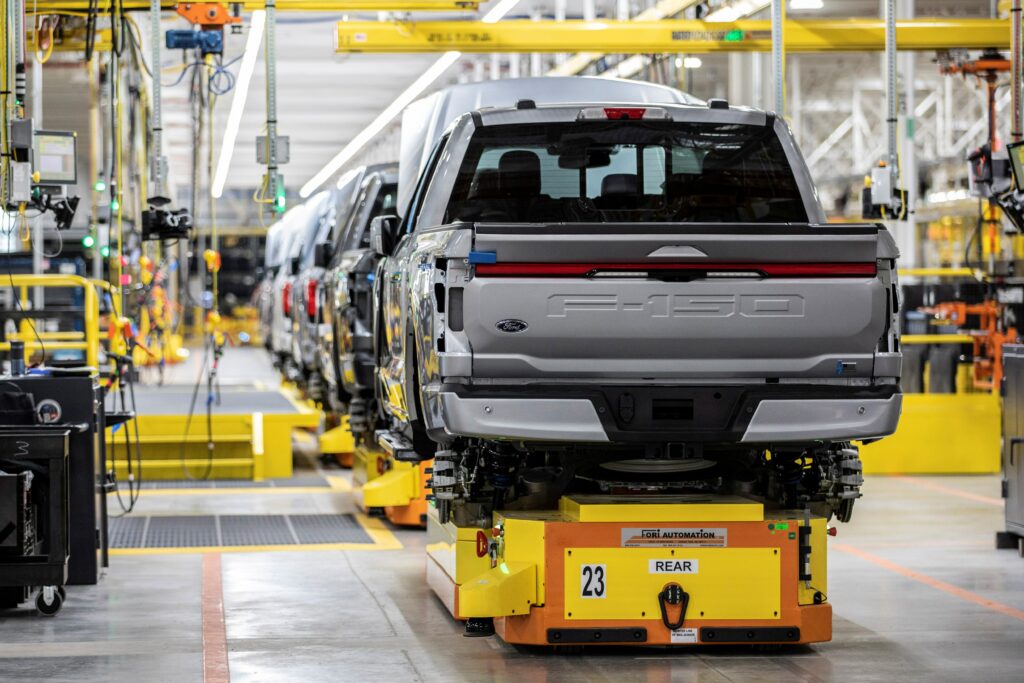
2025 Update: The average transaction price for an EV rose slightly last month. Check out the details below.
Car buying is the second biggest expense most consumers will ever make, and more drivers are getting squeezed into $1,000/month car payments. With an EV, you can save hundreds of dollars per month in fuel costs, but the upfront cost of getting into an electric car is substantial. Here’s the average price of an electric car today, and how much prices have increased over the past three years.
As of the most recent data from December 2024, the average transaction price for a new car (of any powertrain) was $49,740 according to Kelley Blue Book. That’s up slightly from the month prior. In December 2024, the average new electric car price was $55,544.
In 2025, the average price paid for a new EV is 12% higher than the overall new car market average. How does this compare to the recent past? In 2024, electric car prices averaged 16% more than the overall market average. In 2023, EV prices averaged more than 8% higher than the overall market.
EV prices appear to have stabilized, and remain a premium segment in most cases. It’s also true that overall new car prices are much higher than historical norms, regardless of powertrain. According to KBB, new EV pricing peaked in June 2022 at $66,997, and has fallen by $11,453 since.

An abundance of luxury options continues to keep the average price of an electric car well above gas counterparts. Affordable options like the Chevrolet Equinox EV have arrived, but so have expensive electric trucks like the Tesla Cybertruck and offerings from GM.
Electric truck prices are generally expensive (see electric truck prices here). For instance, the Chevrolet Silverado EV is not as affordable as originally claimed. Most electric trucks cost over $75,000 once trim and spec availability is considered.
Although the average EV sells for 12% more than gas-powered models, here’s a breakdown of the starting MSRP for the top 10 electric car models on sale right now. As you can see, not all EVs are quite this expensive:
The average starting price for the top 10 best-selling electric cars in America is $48,899, which is 10% lower than six months prior.
In January 2020, the average electric car price was $54,668, or 42% higher than the overall market average. By 2023, the average cost of a new EV was $53,376 or about 10% higher than the overall new car market. Of course, this reflects the overall rising prices in the broader new car market. Here’s how the average cost of an electric car has changed monthly from January 2020 to 2025.
| 1-2020 | 2-2020 | 3-2020 | 4-2020 | 5-2020 | 6-2020 | 7-2020 | 8-2020 | 9-2020 | 10-2020 | 11-2020 | 12-2020 | 1-2021 | 2-2021 | 3-2021 | 4-2021 | 5-2021 | 6-2021 | 7-2021 | 8-2021 | 9-2021 | 10-2021 | 11-2021 | 12-2021 | 1-2022 | 2-2022 | 3-2022 | 4-2022 | 5-2022 | 6-2022 | 7-2022 | 8-2022 | 9-2022 | 10-2022 | 11-2022 | 12-2022 | 1-2023 | 2-2023 | 3-2023 | 4-2023 | 5-2023 | 6-2023 | 7-2023 | 8-2023 | 9-2023 | 10-2023 | 11-2023 | 12-2023 | 1-2024 | 2-2024 | 3-2024 | 4-2024 | 5-2024 | 6-2024 | 7-2024 | 8-2024 | 9-2024 | 10-2024 | 11-2024 | 12-2024 | |
|---|---|---|---|---|---|---|---|---|---|---|---|---|---|---|---|---|---|---|---|---|---|---|---|---|---|---|---|---|---|---|---|---|---|---|---|---|---|---|---|---|---|---|---|---|---|---|---|---|---|---|---|---|---|---|---|---|---|---|---|---|
| Average EV Price | $54,669 | $56,326 | $56,059 | $57,757 | $58,863 | $57,480 | $57,346 | $57,346 | $54,381 | $52,947 | $53,117 | $53,811 | $57,750 | $57,491 | $56,503 | $56,059 | $56,140 | $58,914 | $56,110 | $57,540 | $56,312 | $55,625 | $56,437 | $63,821 | $62,876 | $64,807 | $66,386 | $65,094 | $64,553 | $66,997 | $66,645 | $66,524 | $65,291 | $64,249 | $65,041 | $61,448 | $58,725 | $58,385 | $58,940 | $55,089 | $55,488 | $53,438 | $53,469 | $52,212 | $50,683 | $51,715 | $52,362 | $53,611 | $55,353 | $53,707 | $54,021 | $55,252 | $56,648 | $56,371 | $56,520 | $56,575 | $57,580 | $56,902 | $55,105 | $55,544 |
| New Car Average | $38,747 | $38,550 | $38,812 | $39,904 | $39,138 | $39,731 | $39,512 | $39,571 | $40,159 | $40,770 | $40,937 | $41,335 | $41,248 | $41,366 | $40,680 | $41,172 | $41,534 | $42,633 | $43,056 | $43,418 | $45,031 | $46,026 | $46,329 | $47,243 | $46,404 | $46,082 | $46,223 | $46,676 | $47,275 | $48,043 | $48,182 | $48,301 | $48,094 | $48,281 | $48,681 | $49,507 | $49,388 | $48,763 | $48,008 | $48,275 | $48,528 | $48,808 | $48,334 | $48,126 | $47,899 | $47,936 | $48,247 | $48,759 | $47,401 | $47,244 | $47,218 | $48,368 | $48,389 | $48,424 | $48,166 | $47,870 | $48,397 | $48,623 | $48,724 | $49,740 |
We track EV market share monthly. Here’s where things stand today.
Regardless of whether you think an EV might be in your future, CarEdge Car Search is the best way to shop online with more transparent pricing, and auto industry insights dealers don’t want you to see. Check it out today!

The best EVs under $50,000 are more capable than ever before. But that doesn’t mean that they’re equally suited for the diverse needs of today’s drivers. Whether you’re hauling a family or looking for your next ridesharing car, these are the best EVs under $50k that are available now.
To qualify for federal EV incentives, ensure you purchase a Tennessee-built VIN.

Price: $37,495 – $53,995
Range: 208 – 293 miles
Charging Speed: 130 kilowatts (standard) to 170 kilowatts (Pro); Add 200 miles of range in 28 minutes

Tax Credit: The U.S.-built ID.4 qualifies for at least half of the new EV tax credit. Make sure yours is built at the Chattanooga, Tennessee factory! See full details here.
Did You Know? The 2024 VW ID.4 includes three years of free 30-minute charging sessions at Electrify America. For those who travel often, this incentive could be worth hundreds of dollars.
Build and price your own ID.4 at vw.com
After a price drop, the cheapest Tesla is available for thousands less. No dealers, no markups!

Price (rear-wheel drive): $42,380 (including destination charges)
Range: 272 miles
Charging Speed: 170 kilowatt max (adds 200 miles in 30 minutes of charging)
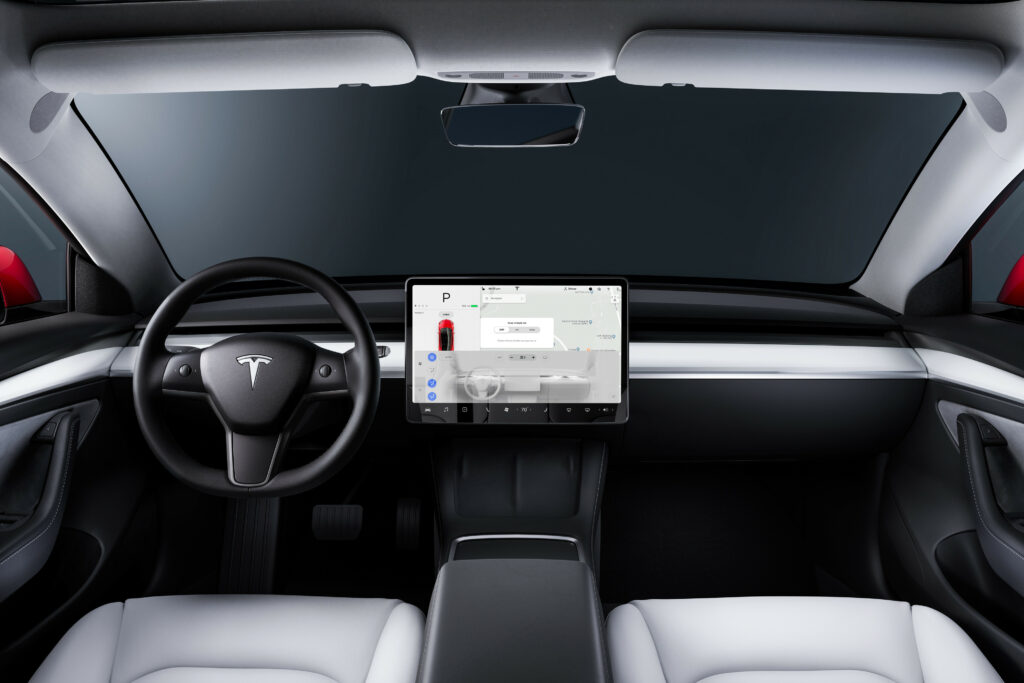
Federal Tax Credit: In 2024, the rear-wheel drive and all-wheel drive variants of the Tesla Model 3 have again lost the federal EV tax credit. This time, it’s not due to high sales, but because of battery sourcing.
Did You Know? Used Tesla prices have fallen dramatically since price cuts for new Tesla models were announced. See the latest used Tesla price forecast here.
Build and price the Model 3 at Tesla.com
As long as your Bolt has the new battery post-recall, the Bolt is by far the most affordable electric option available. But it’s not for road trips with the family.
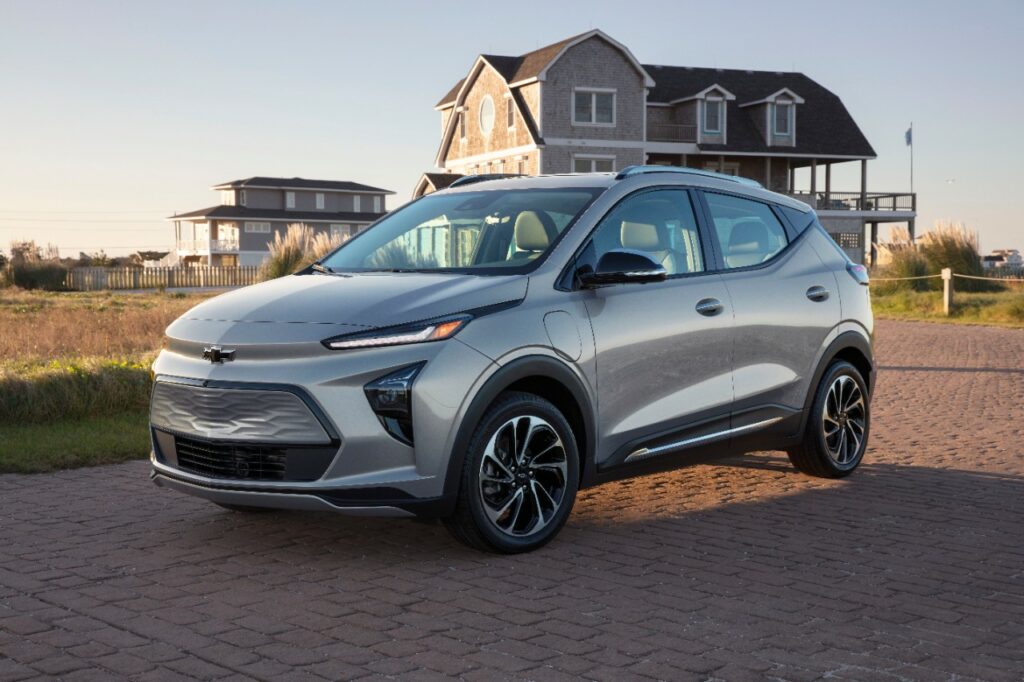
Price: $26,595 – $38,995
Range: 247 to 259 miles
Charging Speed: 55 kilowatt max (adds 200 miles in one hour of charging)

Federal Tax Credit: In 2024, the Bolt again qualifies for federal EV incentives. See full details here.
Did You Know? The Bolt has great range, but charges slowly. We think this is a great budget option for around town, but not for cross-country road trips.
Build and price your own Bolt EV or EUV at chevrolet.com
The new IONIQ 5 may have stolen the show, but the Kona EV is thousands of dollars cheaper. It’s one of the best EV values well under $50k. If you take frequent road trips, the Kona’s slow charging could be a deal breaker.

Price: $33,550 – $41,550
Range: 258 miles
Charging Speed: 100 kilowatt max (180 miles added in 47 minutes)

Federal Tax Credit: In 2022, the new revisions to the EV tax credit took away this incentive from the Kona EV. See full details here. State incentives may apply.
Did You Know? The all-new Hyundai IONIQ 5 has stolen the show with more range, MUCH faster charging, and better looks. Although MSRP starts closer to $45,000, dealer markups make it hard to find one under $50,000. More on that below.
Build and price your own Kona EV at hyundaiusa.com
Don’t like the looks of the Kona EV? The Niro is the same vehicle on the inside. Note that the Niro and Kona EVs are based on older EV powertrains, and charge quite slowly. Go for the Kia EV6 or IONIQ 5 for faster charging.

Price: From $40,875 with destination fees
Range: 253 miles
Charging Speed: 100 kilowatt max at a DC fast charger (adds 177 miles of range in about 45 minutes)

Federal Tax Credit: The new revisions to the EV tax credit took away this incentive from the Niro EV. See full details here. State incentives may apply.
Did You Know? The 2024 model year introduces a plug-in hybrid version with 33 miles of all-electric range. This is a great option for frequent travelers, rural drivers, and those without a place to charge at home.
Build and price your own Niro EV or plug-in hybrid
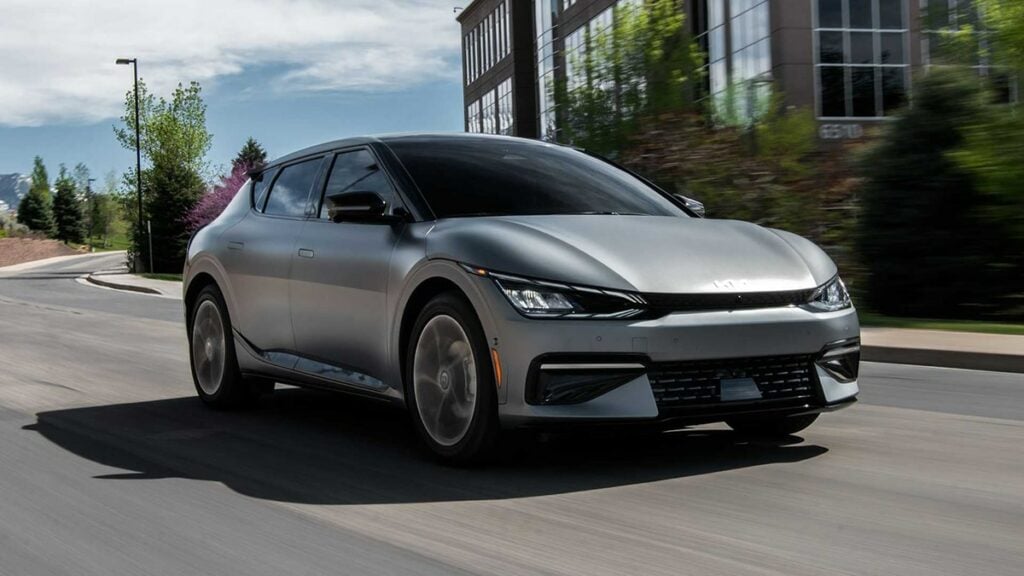
Price: $43,800 (Wind Rear-Wheel Drive)
Range: 310 miles
Charging Speed: 235 kilowatt max at a DC fast charger (adds 200 miles of range in about 20 minutes)
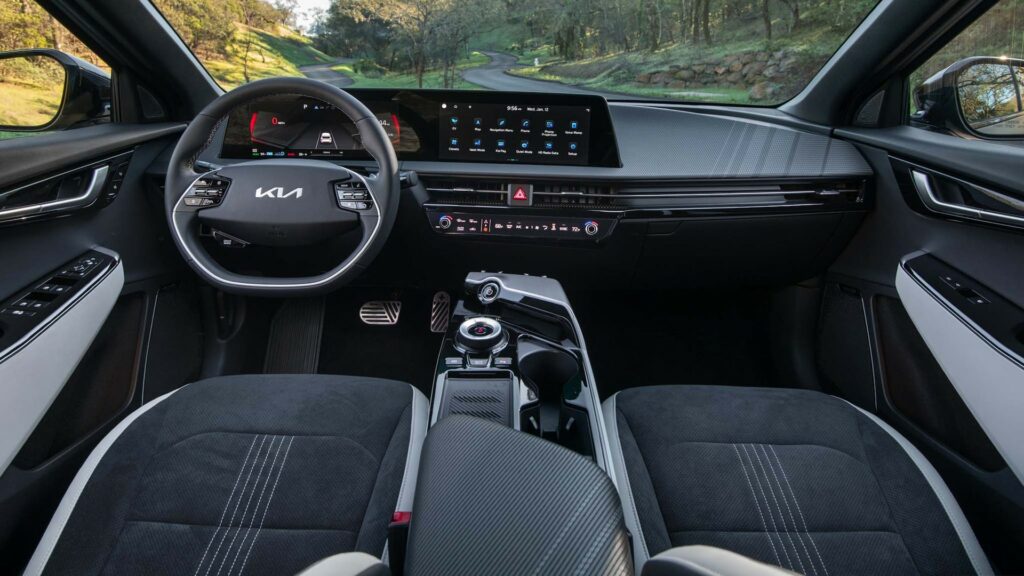
Federal Tax Credit: The new revisions to the EV tax credit took away this incentive from the EV6. See full details here. State incentives may apply.
Did You Know? The Kia EV6 is based on the same e-GMP electric platform as the Hyundai IONIQ 5. If the looks of the EV6 are too much for you, maybe the IONIQ 5 is up your alley. The EV6 comes with 1,000 kilowatt-hours of free charging at Electrify America. That’s about 15 charging sessions from 10% to 80%.
Build and price your own EV6 at kia.com
Despite winning so many awards in 2022, Hyundai has struggled to sell the IONIQ 5 due to the loss of the federal tax credit. See the latest IONIQ 5 inventory in your area.

Price: From $43,785 (SE Standard Range). Gain more range from $45,000+.
Range: 220 miles (Standard Range) to 310 miles
Charging Speed: 235 kilowatt max at a DC fast charger (adds 200 miles of range in about 20 minutes)

Federal Tax Credit: The new revisions to the EV tax credit took away this incentive from the IONIQ 5. See full details here. State incentives may apply.
Did You Know? The IONIQ 5 and it’s sibling the Kia EV6 are by far the fastest-charging EVs under $50,000. The IONIQ 5 has two years of free charging at Electrify America.
Build and price your own IONIQ 5 and hyundaiusa.com
Last but certainly not least, the entry-level Mustang Mach-E starts under $50k. Finding one without a dealer markup is a challenge.
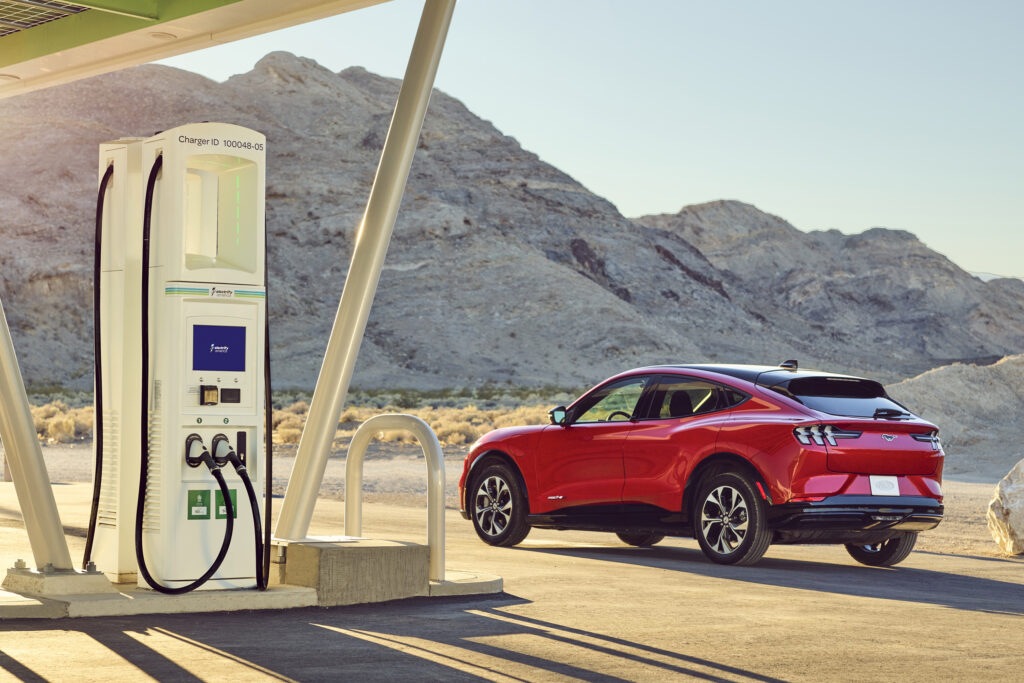
Price: Starting at $45,995
Range: 247 miles (Standard Range battery)
Charging Speed: 150 kilowatt max speeds (adds 170 miles of range in 35 minutes)

Federal Tax Credit: The Mustang Mach-E is made in Mexico, so it continues to qualify for at least half of the new EV tax credit. Qualification for the full credit depends on the battery supplier. See the latest from the federal government.
Did You Know? The Mustang Mach-E is one of the top-selling EVs in America, although it remains far behind Tesla.
Build and price your Mustang Mach-E at Ford.com
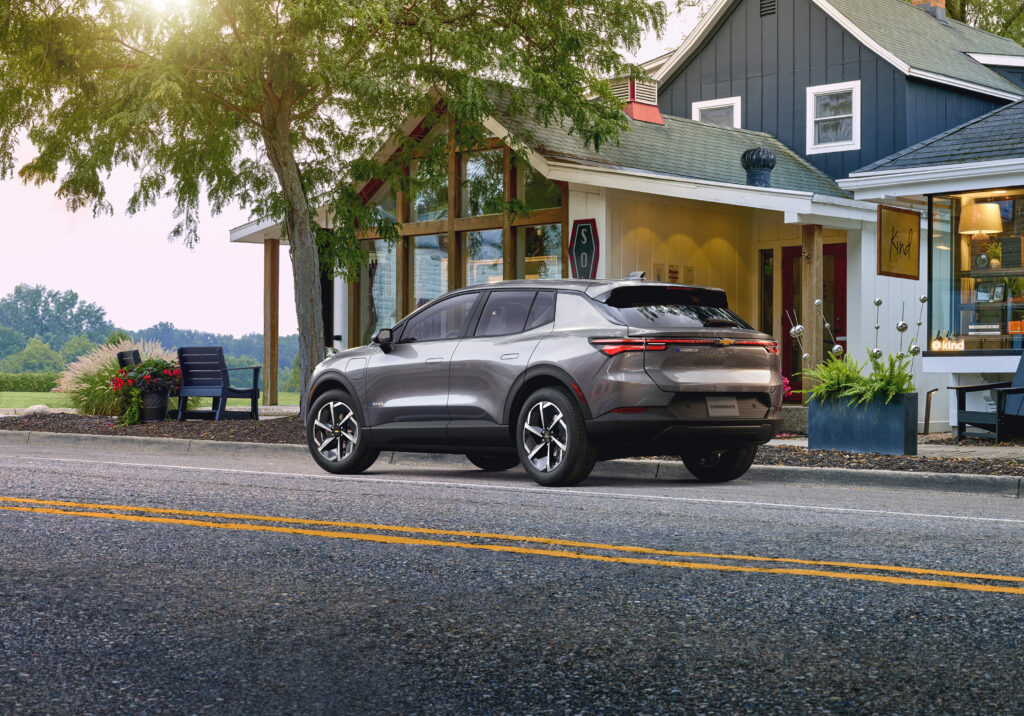
The Equinox EV was recently introduced, and GM still claims that it will start “around $30,000.” Even if the most preferred trim options run closer to $40,000, the Equinox EV looks to be a great deal.
Here are the standout specs GM has released:
See every detail released so far, from trim options to expected pricing
Don’t forget that both state and federal EV incentives may apply. Here’s our full breakdown of which models are likely to qualify. For the first time, a used EV tax credit is available, but very few models qualify due to the price cap. We’ve got the full details covered here.
Not sure which path is right for you? Head over to the CarEdge community forum to chat with auto experts with years of experience. I’m on the forum daily!

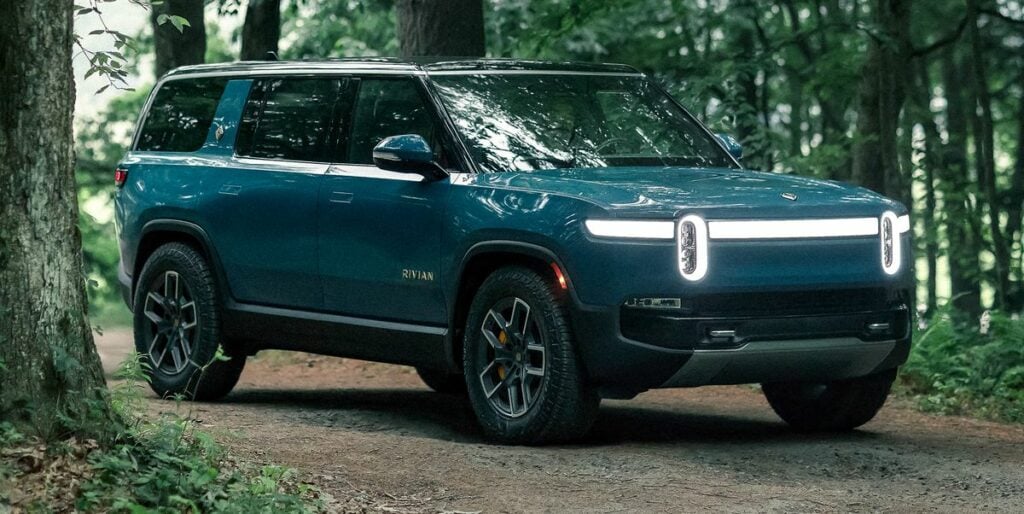
If you’re thinking about hauling the kids off to school with zero emissions, today’s EVs offer more range, faster charging and greater fuel savings. The best electric cars and SUVs for families are available in a wide range of options to meet your needs, and an even wider range of price points. These are the best electric crossovers and SUVs on sale in 2024.
If you need space for four, five, or maybe six people (plus those furry friends), these 3-row electric SUVs are built for you.

Reviewers absolutely LOVE the new Kia EV9. As the first mainstream 3-row electric SUV to hit the American market, the EV9 was highly anticipated. We can confirm that it has been worth the wait. Step inside this full-size SUV, and you’ll immediately note the spaciousness and luxurious feel of this premium-feeling Kia. This one is worth a test drive.
Price: $56,395 – $75,395
Range: 230 – 304 miles
Charging (public fast charger): can add 200 miles in 18 minutes
Passenger volume: 159 cubic feet (three rows, seats 6)
Cargo volume behind second row: 44 cubic feet
Total cargo volume: 82 cubic feet
NHTSA safety rating: Not Rated (5-Star Euro Rating)
See Kia EV9 new and used listings with local market data.

Rivian is just beginning to ramp up production and sales of the Rivian R1S, the full-size electric SUV companion to the R1T electric truck. The 2024 Rivian R1S is a blend of luxury and off-road capability. This 3-row EV is made in America, at a converted manufacturing facility in Normal, Illinois. We can only recommend this great vehicle if you live within a reasonable distance of one of Rivian’s service centers. If you end up needing service, you don’t want to pay for a long-distance tow truck!
Price: Starting at $74,900
Range: 316 miles
Charging (Public fast charger): can add 140 miles in 20 minutes
Passenger volume: (three-row SUV)
Cargo volume behind second row: 46.7 cubic feet
Total cargo volume: 104.7 cubic feet
Safety rating: Top Safety Pick+ by IIHS
Learn more about the Rivian R1S.
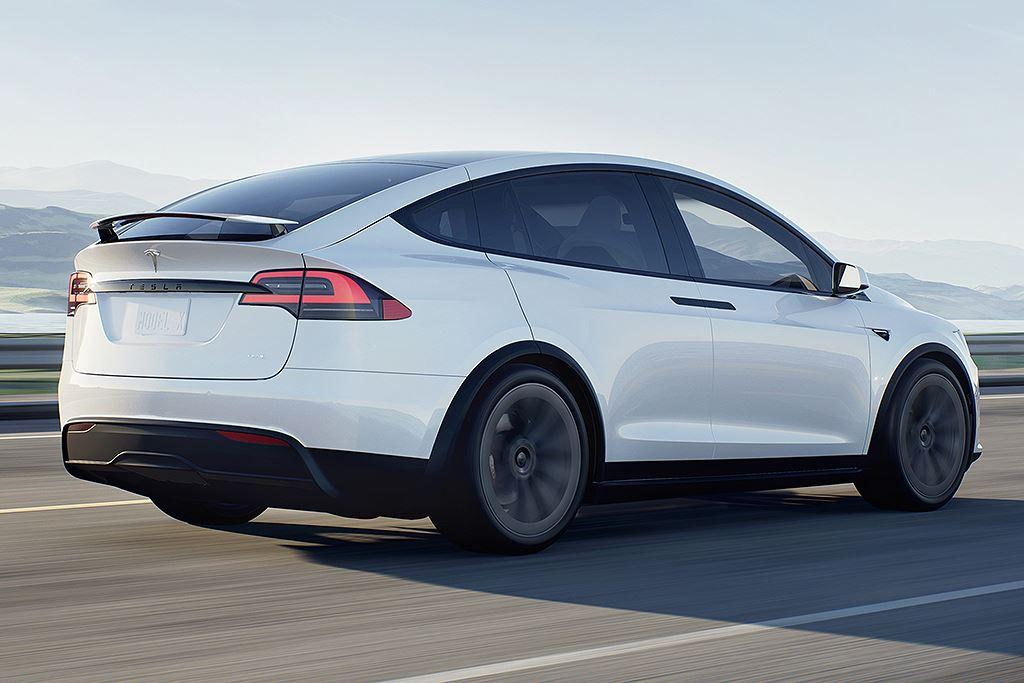
With gull-wing doors and a massive glass roof, there’s no hiding the fact that the Tesla Model X is a luxury SUV. In 2024, the Model X has seen multiple price cuts, and now starts around $80,000.
Price: $79,990 to $120,000+
Range: 351 miles
Charging (Public fast charger): can add 200 miles in 15 minutes
Passenger volume: N/A (three rows)
Cargo volume behind second row: 42.5 cubic feet
Total cargo volume: 92.3 cubic feet
Safety rating: 5 stars from Euro NCAP
See Tesla Model X new and used listings.
These electric crossover SUVs are the highest-rated, most-loved EVs for families today. Although they lack a third row, they’re plenty big enough for most families of four. Spaciousness, pricing, range and charging speeds vary from one electric model to another. We’ve also included NHTSA safety ratings if they’re available.

The Model Y is the best-selling electric vehicle in America. Model Y prices have fallen 20% from 2022’s highs. It’s now possible to buy a Model Y for well below $50,000 with the point-of-sale EV tax credit. Although it’s known for autonomous driving, the full capability (known as FSD) is a $15,000 package.
Price: $49,990 to $74,990
Range: 279 to 330 miles
Charging (Public fast charger): can add 200 miles in 15 minutes
Passenger volume: 106 cubic feet
Cargo volume behind second row: 26.6 cubic feet
Total cargo volume: 72 cubic feet
NHTSA safety rating: 5 stars
See Model Y new and used listings.
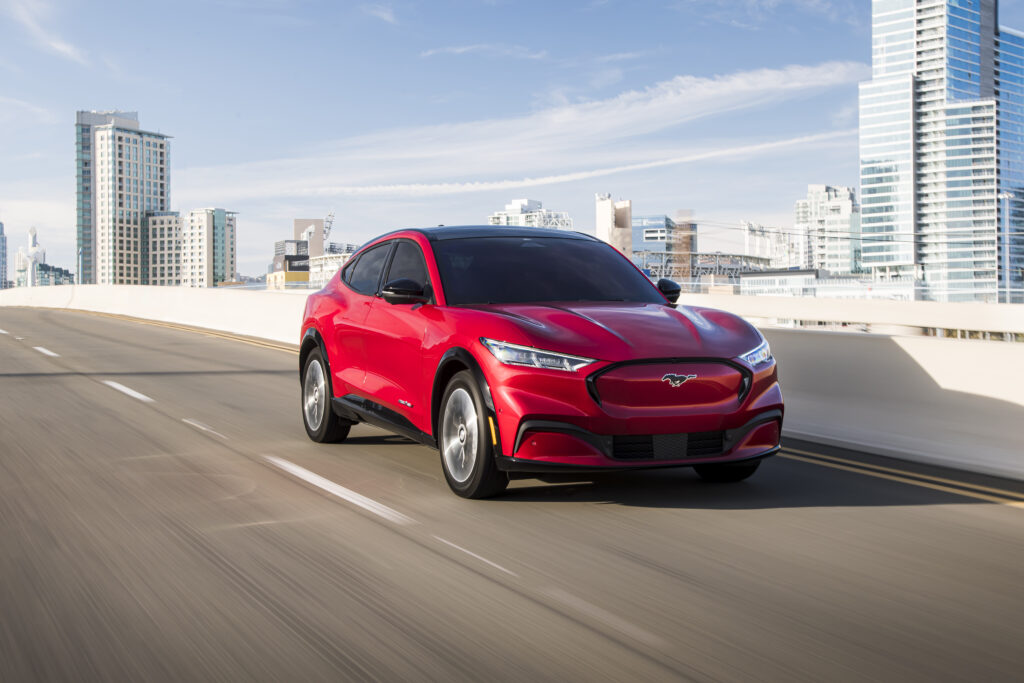
Ford’s first serious EV is very popular among small families and speed freaks alike. If the Mustang brand has a special place in your heart, this just might be the EV for you.
Price: $45,995 to $63,575+
Range: 224 to 312 miles of range
Charging (Public fast charger): can add 120 miles in 20 minutes
Passenger volume: 104.5 cubic feet
Cargo volume behind second row: 29.7 cubic feet
Total cargo volume: 59.7 cubic feet
Safety rating: IIHS Top Safety Pick
See Mustang Mach-E new and used listings.

I can confidently say that the IONIQ 5 is a great family car, and that’s because my wife and I haul our own kiddo around in this segment-bending electric crossover with hot hatch flavors. The IONIQ 5 has won many awards, including Car and Driver’s 2022 EV of the Year. It charges VERY fast, and that’s what I love most about the car.
Price: $40,925 to $57,400+
Range: 220 to 303 miles
Charging (Public fast charger): Adds 200 miles of range in 20 minutes
Passenger volume: 106.5 cubic feet
Cargo volume behind second row: 27.2 cubic feet
Total cargo volume: 59.3 cubic feet
Safety rating: Top Safety Pick Plus from IIHS
See Hyundai IONIQ 5 new and used listings.

The spaceship-styled EV6 is Kia’s version of the Hyundai IONIQ 5, which shares the e-GMP electric powertrain. The Kia EV6 has slightly less passenger and cargo space than the Hyundai, but it’s better range and equally fast charging make it an obvious feature on this list of best electric cars for families.
One thing to bear in mind: most EVs, including the EV6 and IONIQ 5, have a flat floor, meaning that there’s a bit more interior space than it would appear. The best thing you can do is check one out in person!
Price: $43,920 to $61,600+
Range: 274 to 310 miles
Charging (Public fast charger): Adds 200 miles of range in 20 minutes
Passenger volume: 103 cubic feet
Cargo volume behind second row: 24.4 cubic feet
Total cargo volume: 50.2 cubic feet
Safety rating: In Europe, the EV6 earned 5 stars
See Kia EV6 new and used listings.
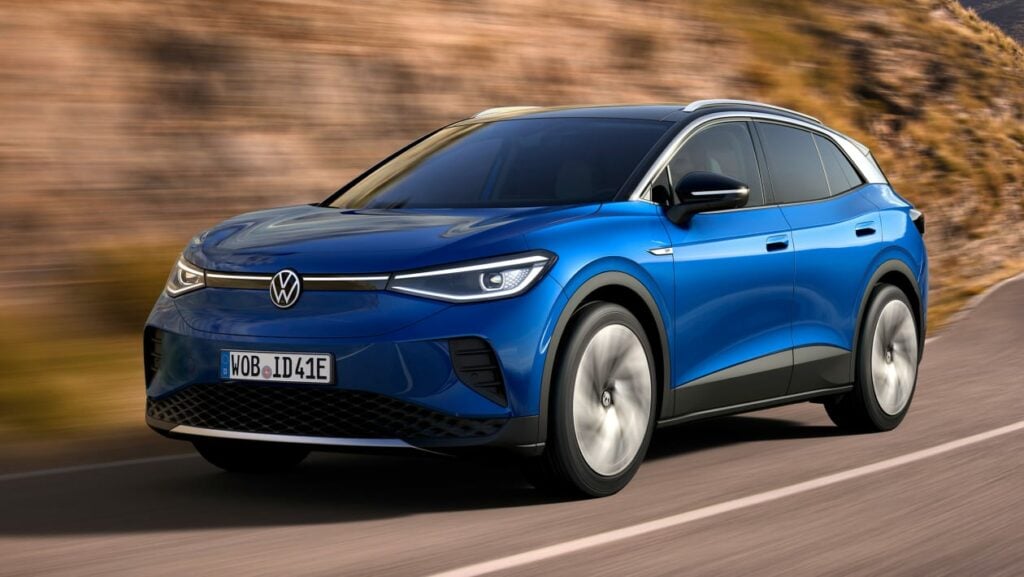
We have great news for those in search of an affordable and capable EV that qualifies for the federal tax credit. The ID.4 is now made in Tennessee at Volkswagen’s Chattanooga plant! The newest American-made EV is equipped with decent range, okay charging, and a comfortable interior that’s designed for families. However, don’t expect Tesla-level infotainment. The ID.4 is best for those who are content with the simpler things in life.
Charging speeds are merely okay, but the 2024 model year gets a decent improvement.
Price: $38,790 to $55,000
Range: 208 to 275 miles
Charging (Public fast charger): Adds up to 190 miles of range in 30 minutes
Passenger volume: 99.9 cubic feet
Cargo volume behind second row: 30.3 cubic feet
Total cargo volume: 64.2 cubic feet
Safety rating: Top Safety Pick Plus
See Volkswagen ID.4 new and used listings.
The Inflation Reduction Act eliminated the original EV tax credit and replaced it with a completely revised tax credit. For vehicles that qualify, up to $7,500 in tax credits are available. However, the incentive is based on battery sourcing, which will be determined by the automakers. Income limits restrict buyer eligibility, too. See the full details on qualifying models here.
There’s also a used EV tax credit for the first time, but a price cap of $25,000 eliminates every single family EV on this list.
Generous state and local incentives may make the switch to an EV much more affordable, depending on where you live. See the most generous state-level EV incentives, and check with the DSIRE clean energy incentive database to find more incentives for your specific location.
Which family-size electric car are you considering? Let us know in the comments, or better yet join the conversation at our CarEdge Community forum.
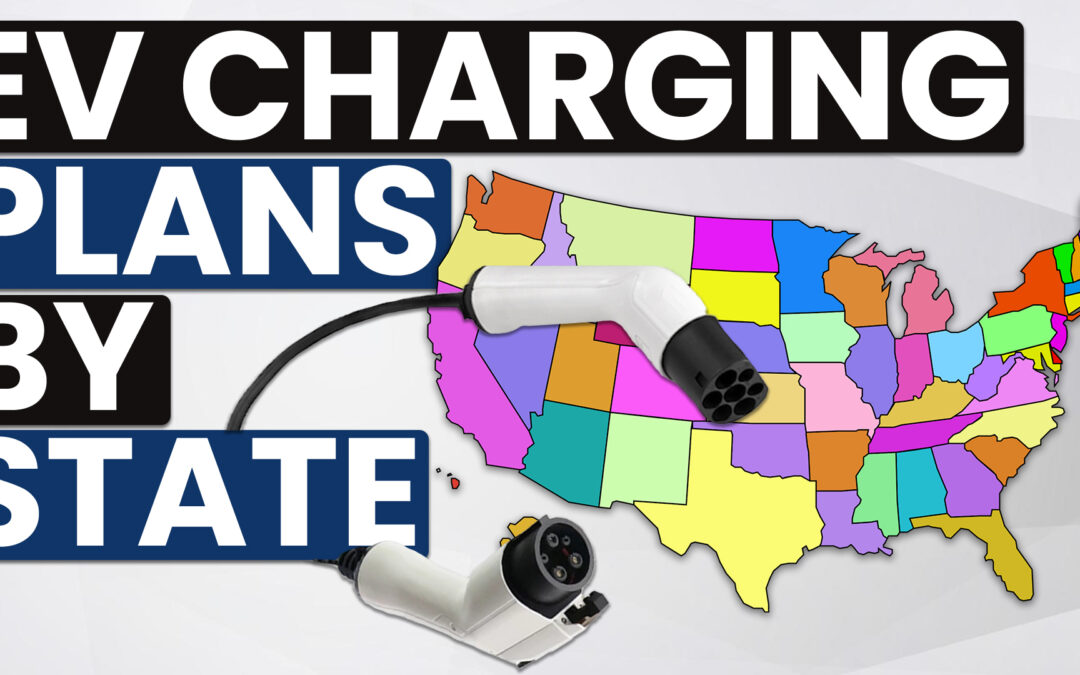
When the Bipartisan Infrastructure Investment and Jobs Act was signed into law in 2021, $1.2 trillion in federal funding was earmarked for dozens of projects ranging from bridge repair to internet access. Included in the massive package is $7.5 billion for National Electric Vehicle Infrastructure (NEVI), also known as the national charging network. States were tasked with submitting a plan for how they would spend NEVI funding, with a submission deadline of August 1, 2022. Now that states have turned in their EV charging proposals, we decided to create this resource with every state’s plans for how they’ll spend NEVI funding.
There’s a lot to unpack here. Phase one of this five-year initiative will prioritize DC fast chargers every 50 miles along Alternative Fuel Corridors, which are usually interstate highways. Once state NEVI plans are approved by the Federal Highway Administration, the contract bid process and construction will kick off in early 2023.
Fiscal year 2022 (FY2022) funding is based on the state’s population, size, and number of major highways. We’d love to hear what you think about how your state is planning to build out their portion of the national charging network.
With electric vehicle market share recently rising above 5%, it’s not too late to get the ball rolling on a national charging network. But time is of the essence. Sales data from Europe saw accelerated adoption once the 5% market share threshold was surpassed, and half of American drivers are interested in EVs.
Of greater concern is the many ways in which the build out of a national charging network could fall short, and this is what’s on my mind. Anyone who’s ever frequented Electrify America charging stations is well aware that malfunctioning charging stations are a lot more common than they should be. In my experience with my Hyundai IONIQ 5, it seems like one out of five chargers has issues.
Can states, the U.S. Department of Transportation and private partners install 500,000 chargers that are more reliable and less confusing than the status quo? Perhaps they could learn a thing or two from Tesla, whose Supercharger network is the gold standard. In many ways, the success of electric vehicles in America will rely on the success of the state plans shared here. I’d be lying if I told you I wasn’t feeling a bit of anxiety about how this could go!
Drop us a comment below. What’s your take on these state plans for the national charging network?